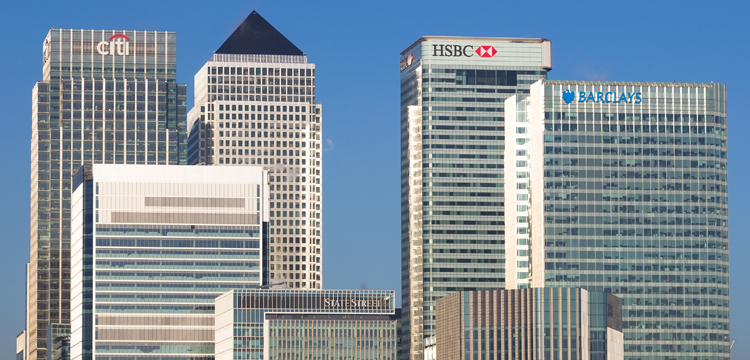Four ex-top-level executives of Barclays have been charged by the Serious Fraud Office (SFO) and a former European Bank for Reconstruction and Development (EBRD) banker jailed for six years.
Today Andrey Ryenko (joint Russian and British citizenship) was jailed for 6 years for accepting bribes of more than $3.5m comprising 50% of a US based consultant's commission paid when EBRD applications for funding were approved. Payments were made into accounts in the name of his sister.
On Tuesday, Barclays ex-CEO John Varley and three former senior executives were charged by the SFO with fraud offences related to securing cash injections into the bank at the height of the 2008 financial crisis. Barclays itself was also charged with conspiracy to commit fraud by false representation and unlawful financial assistance in its arrangements with Qatari investors.
So, what are the common threads? Well both involve major international banks. Mr Ryenko received corrupt payments for services rendered and Barclays which has been under investigation for refinancing transactions for some years, had not disclosed transaction arrangement fees amounting to £332m payable over five years.
Furthermore, it is alleged that within these arrangements Barclays made a loan to Qatar investors against which Barclays shares were purchased.
Lurking in the background, there is a further civil case being brought by a UK based adviser to Sheikh Mansour bin Zayed al-Nahyan of the United Arab Emirates, claiming fees from Barclays after a separate £3bn injection was put into Barclays.
This is not "banker bashing" but put simply the chickens are coming home to roost! Bold UK enforcement steps have been taken to prosecute complex fraud. If corruption is defined as the "abuse of power for personal gain” these situations fit well into this definition.
Lesson One
The use of intermediaries is evident in both cases (whether illicitly in the case of Barclays is yet to be proven). Companies intent on closing unlawful deals rarely pass the incentives directly to their counterparty but use the discreet services of an intermediary. While formal agreements might be in place, where an arrangement is deliberately used as a channel to influence a deal to the benefit of the organisation that stands to gain, it is likely to be breaking the law. Enforcement authorities worldwide understand this type of arrangement, so there is little point in companies believing they can get away with it in a media savvy digital world. It is likely to end in tears!
Lesson Two
Even more interesting is the Barclays allegations. Four reputable bankers in an internationally well-regarded bank are charged with breaking the law – of course they are all yet to be tried on the evidence put before a court. However, the SFO has gone those who were at the top of the organisation as it is doing elsewhere, strongly signalling that directors and senior executives are not beyond being brought to book. If these former Barclays executives are found to have been implicit in the alleged offences, a realistic outcome will be imprisonment; a sobering thought for all company directors and senior executives if they decide to sail too close to the wind - whatever the circumstances.

You need to sign in or register before you can add a contribution.